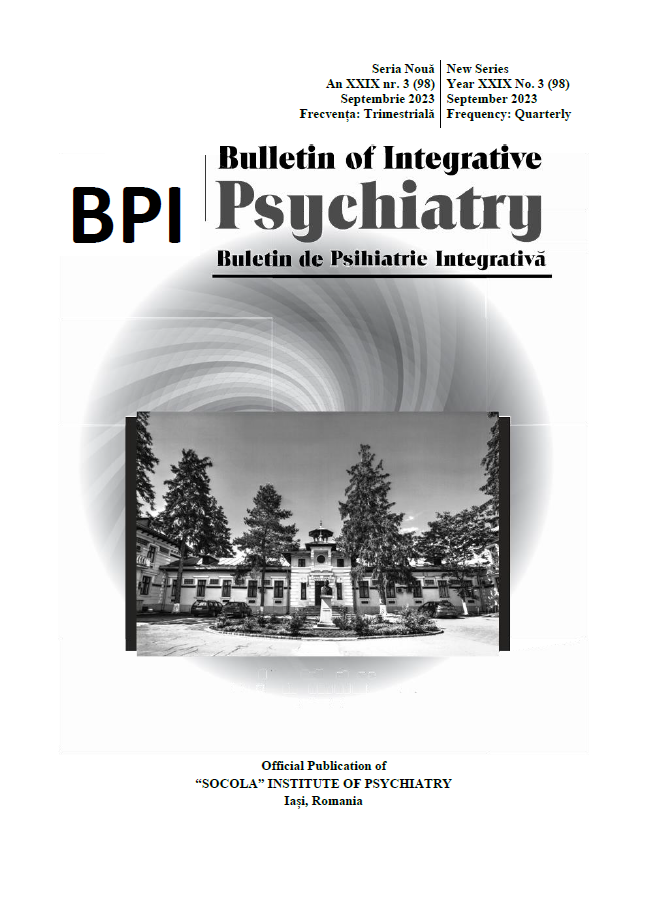Gender dysphoria and anorexia nervosa – a scoping literature review
Gender dysphoria and anorexia nervosa – a scoping literature review
Author(s): Nicoleta Ciobanu-Hașovschi, Gabriela Ștefănescu, Cristinel ȘtefănescuSubject(s): Essay|Book Review |Scientific Life, Psychology of Self, Clinical psychology, Health and medicine and law
Published by: Editura Sedcom Libris Iasi
Keywords: Gender dysphoria; anorexia nervosa; eating disorders; body image;
Summary/Abstract: Gender dysphoria is a relatively new topic in psychopatology and even less studied among Romanian people. At the same time, until now, most studies related to another specific psychopatology, that is eating disorders, in particular anorexia nervosa, have been focusing on the cisgender population. Recent years have shown an increase in studies correlating eating disorders with gender nonconforming people and the ones suffering from gender dysphoria. Both anorexia nervosa and gender dysphoria are correlated with poor body image, although stemming from different causes. Gender dysphoria is also associated with other eating disorders, behavioural problems and minority stress. Anorexia nervosa may also represent a dysfunctional coping mechanism in order to alter the person`s appearance, so as to better suit their perception of their desired gender identity. We conducted a scoping review, focusing on the articles correlating gender dysphoria and eating disorders, especially anorexia nervosa, with the purpose of better acknowledging the extent of the phenomena and some of its correlations. Participants were people registered in studies which analysed interconnections among those psychopatological particularities, regardless of age. The main results were: eating disorders, in particular nervous anorexia are common to both cisgender people and people with gender dysphoria, eating disorders are greatly influenced by risk factors such as: negative body image driven mostly by media, general dissatisfaction regarding gender incongruence, social and minority stress. Gender affirming treatment (hormonal / surgical) can influence eating disorders, but researchers do not have a unitary viewpoint on the matter. Conclusions: more detailed studies are needed to understand how gender dysphoria influences nervous anorexia, and viceversa, and how this eating disorder evolves after gender affirming interventions. More specific information is also needed to educate medical caregivers in order to better assist people with gender dysphoria and eating disorders and offer them the best possible counselling for future treatment.
Journal: Buletin de Psihiatrie Integrativa
- Issue Year: 98/2023
- Issue No: 3
- Page Range: 47-54
- Page Count: 8
- Language: English

